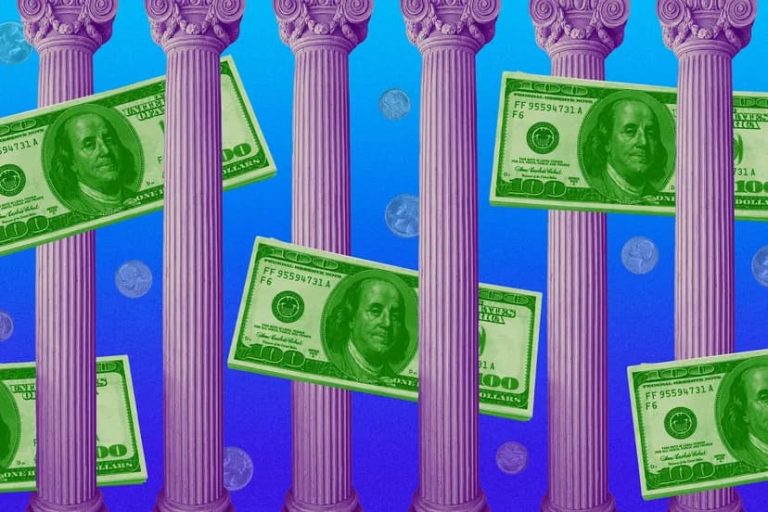
While influencer marketing has been one of the key digital marketing activities in B2C companies, it is a fairly new game for B2B businesses.
This is caused by many different factors on both sides of the spectrum: B2B businesses are fairly late in entering the social media marketing game, but this is also caused by the behavior of the prospects—typically professionals—, where finding work-related information on social media is also a fairly new trend.
The result of this phenomenon? Many B2B companies and marketers are adopting outdated influencer marketing strategies: B2C marketers know that people are now resisting messages from celebrities and mega-influencers, but many B2B companies have just started working with these celebrities and famous athletes.
So, is it too late for B2B influencer marketing? Not at the very least. However, it’s important to understand that B2B influencer marketing is unique compared to the B2C environment.
Here, we will learn how influencer marketing can benefit B2B companies, and how to implement it.
-
Capturing Your Customer’s Attention
The main idea behind influencer marketing is the fact that in this very saturated market and social media networks, it’s really hard to get your voice heard amidst all the noises.
Influencers, with their loyal followers, can deliver the message promoting your business/brand/product with less resistance, and so you might get their followers to follow your brand—or at least, aware of your business.
So, understanding this concept, there are three keys in implementing influencer marketing to capture attention:
- The influencer’s followers must be your ideal audience according to your buyer’s persona. At least a significant number of these followers must align with your ideal market.
- Ideally, the influencer must belong to your niche, although there can be exceptions based on the first rule above. For example, if you are a business selling smartphones, you can target an influencer in the laptop niche where the majority of the followers might also buy smartphones.
- The influencer must be willing to work with you (to promote your brand). Some might offer a specific price tag, some might only want to work with brands they have relationships with, some might want different benefits (i.e., they want exposure to your audience).
This can be easier said than done in the B2B environment, but various influencer outreach tools can help you find the right influencers for your business.
-
Influencer Marketing is Cost Efficient
Influencer marketing is still one of the most cost-effective digital marketing channels available. That is, if you do it right.
Endorsing celebrities and mega-influencers are indeed (very) expensive nowadays, and as we have briefly mentioned above, people are also getting more resistant to celebrity endorsements.
In the B2B environment—where your audience are professionals looking for work-related solutions—, arguably celebrity endorsements are even less effective than in B2C. Professionals tend to look for answers from their peers and accredited experts in the industry.
So, consider partnering with micro (5k-10k) and nano (1k-5k followers) influencers that are trusted by your audience—a trusted thought leader/expert—, and aim for the quality of their followers rather than quantity.
These micro and nano-influencers are obviously more affordable, but on the other hand they can deliver a more genuine message with less resistance, maximizing your ROI.
-
Influencer Marketing Provides Value For Your Customers
Customers want mainly two things from a brand’s social media: story and value.
This is why many brands (both B2B and B2C), focus on producing valuable and educational content, as well as telling interesting stories about their brands and products/services.
We can simply translate this concept in our influencer marketing campaigns: instead of a one-off sponsored post, ask your influencers to deliver a unique and engaging story together with your brand.
For example, we can ask influencers to tell a testimonial about their experiences with our product/service, or can even ask them to deliver a tutorial video about how our products work.
This, can provide a genuine experience, and can be significantly more effective than a sponsored post.
-
Influencer Marketing as Social Proof
The thing is, people only purchase products or services from brands they trust, even more in a B2B environment where the purchase process can involve several different stakeholders.
This is where influencer marketing can fill the gap: when a trusted influencer—an expert or thought leader— endorsed your product, it can be a precious social proof for your brand.
A well-placed and well-timed influencer message can boost not only awareness, but conversion rate due this social proof effect.
-
Influencer Marketing can Boost SEO Performance
SEO and content marketing is often a very important aspect of B2B marketing, and influencer marketing can provide great opportunities and benefits to your SEO performance.
These benefits mainly come in two different ways: backlinks and brand awareness.
Backlinks are obviously one of the most important ranking signals today, and backlinks coming from an influencer’s website can count as a high-quality backlinks.
Influencer marketing will also boost your brand awareness in the form of website traffic and engagement, this will also help with your SEO performance.
End Words
While influencer marketing is still a fairly new game in the B2B environment, it can provide various benefits to our marketing performance—as long as we do it right—.
It’s important to understand that B2B influencer marketing should be approached differently than in B2C, but the main principle remains the same: find the right influencer for your business to maximize ROI.





